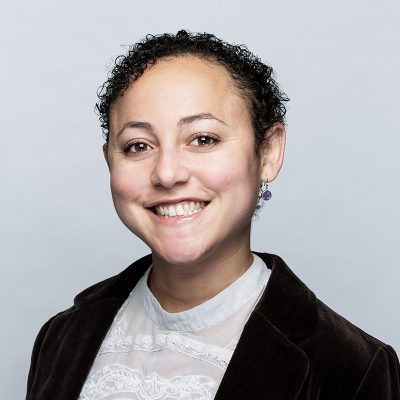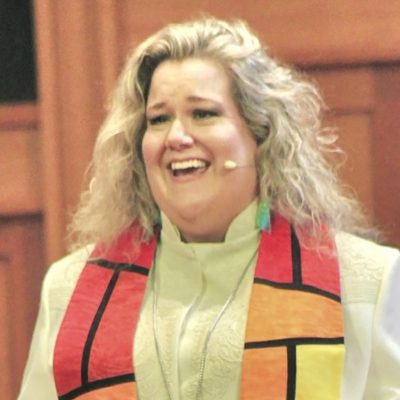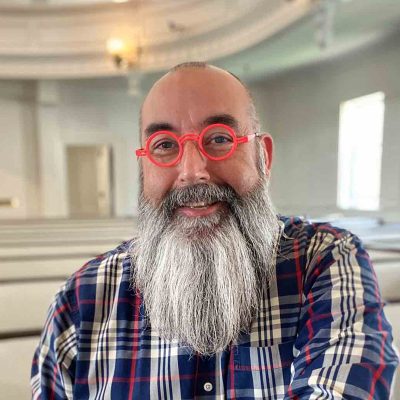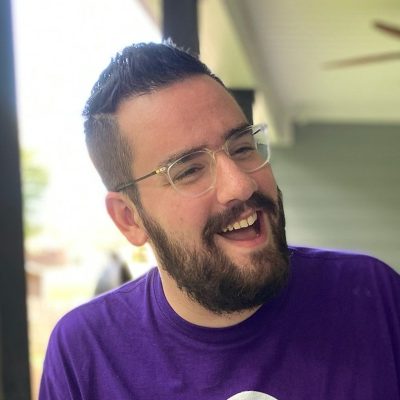Digital Ministry Initiative
WHY THIS PROJECT?
WHAT PARTICIPANTS ARE SAYING...
"In the bizarre and constantly changing field of digital ministry, having a group of innovative peers has been an absolute game-changer. From our first meeting together, I found myself noting multiple new resources that I could use to better my personal ministry that I may have simply never heard about otherwise. We are better together!" - Rev. Nathan Webb, UMC Pastor
Through blogging and social media content creation, my aim is to tell stories inspired by my research as I work to form a spirituality and identity that feel authentic to my being. To use a phrase popularized by womanist ethicist Katie Canon, I am doing the work my soul must have. …Though such work may not be what typically comes to mind when one hears the term digital ministry, I believe such experimental and fluid work related to spirituality and racial identity is imperative in order to reach people who have left church and are looking for understanding and belonging. - Dani Hobbs, Digital Scholarship Assistant and PhD student at Emory University
While the digital world offers unprecedented opportunities for connection, the truth is that digital ministry can be an isolating space for those working in it. To get to gather with, share struggles with, and learn from fellow digital ministers has been precisely the support I needed to continue to press forward in my own digital ministry. - Rev. Brandon Robertson, author, pastor and activist
WHY NOW?
The Convergence Digital Ministry Initiative is a big dream: to empower leaders who can model what digital ministry could look like in various contexts, to equip and inspire faith leaders in varying contexts with different technological abilities to take their necessary next step in digital ministry, and to look forward to where this might be headed rather than perpetually looking back and wishing we could relive our “glory days” of the past.
The ongoing COVID-19 pandemic pushed faith communities around the world into the deep end of digital content and online community. While many faith leaders and communities have learned new skills during this time, many continue to feel stretched thin, overworked, and ready to burn out. But the past few years remind us that the church has always been called to embrace change. This is built into our DNA. This whole movement started with change (incarnation) and change (Pentecost) and change (gentiles) and change (Constantine) and change (monastics) and change (the Reformation) and change.
Convergence believes in "ecclesia reformata sempre reformanda" -- the Church is reformed and always being reformed" -- the church needs to be true to who she has always been called to be -- alive and active and present in the world around us. We can't look the way we always have in the past. To be a person of faith doesn't mean you have to be a person of antiquity. We need to be prepared for and ready to embrace (and cause?) change in the world and within the church. If we don't, then we will always be one step (or one decade) or more behind.
We think that the next iteration of the church will embrace both physical and virtual experiences. After all, virtual is not the opposite of real. It's the opposite of physical. They are both real. This will create tension in what it means to be a "local church" when we can have a global reach and impact. But that has always been the tension of the church, now we're just all experiencing and exploring it all around us.
WHAT DOES THIS COHORT PROGRAM OFFER?
All participants will receive:
- Access to training courses, resources, and coaching for digital ministry and online content creation
- Twice a month live zoom calls for learning and practice, including a four hour online facilitated Futures Lab
- Participation in an annual digital ministry summit
- Ongoing connection and networking on our Discord platform
- Opportunities to create Digital Ministry Resources and Digital Ministry Courses and Events through Convergence
- Opportunities to have articles on digital ministry published on our website and submitted to relevant academic and professional publications
- Opportunities to appear on “How To Do Digital Ministry”, a podcast and YouTube channel dedicated to equipping and training clergy invite leaders in digital ministry.
This work is led by Rev. Jim Keat, the Digital Minister at The Riverside Church and the Director of Online Innovation at Convergence, supported by a Digital Ministry Advisory Board made up of denominational and seminary leaders. These leaders help identify key digital ministry leaders, recruit Fellows from underrepresented communities, discern trends and needs for the future of the church, provide input on resource development, guide the project, and connect the Fellows with various denominations, seminaries, and churches to ensure a broad dissemination of the resources they create.
HOW MUCH?
The cost to be a part of the Cohort Program is $1,200. Limited scholarships are available upon request.
If you are part of a conference or region, cohorts from that region can be organized at reduced cost. Please email us to explore options!
WHEN DOES THE NEXT COHORT START?
Good question. We start new cohorts as soon as we have 10-12 participants. Our next cohort is on track to start in March 2024. We usually launch new cohorts every two months.
MEET OUR CURRENT SENIOR FELLOWS

Ashley Dargai

Daniella Hobbs

Bethany Peerbolte

Brandan Robertson

Timoth Sylvia


